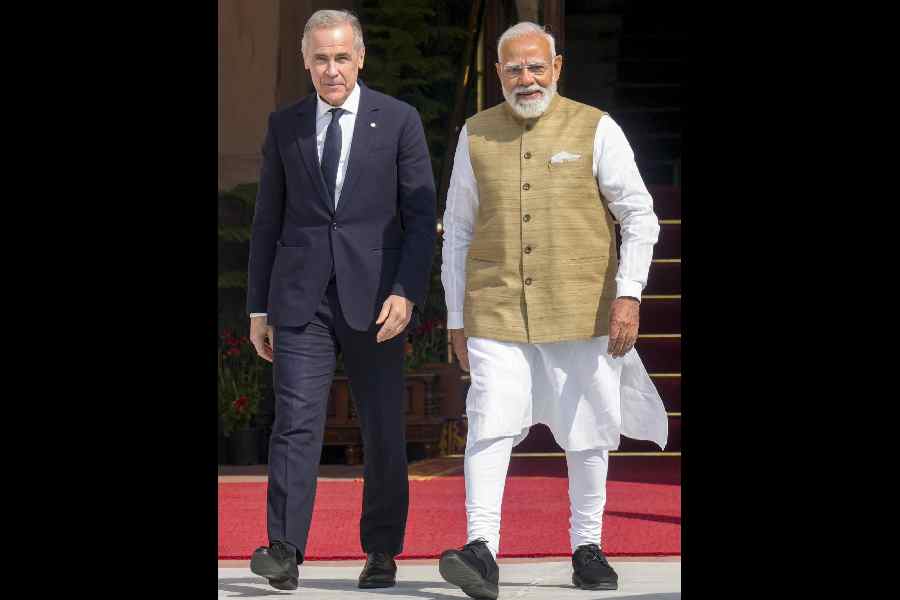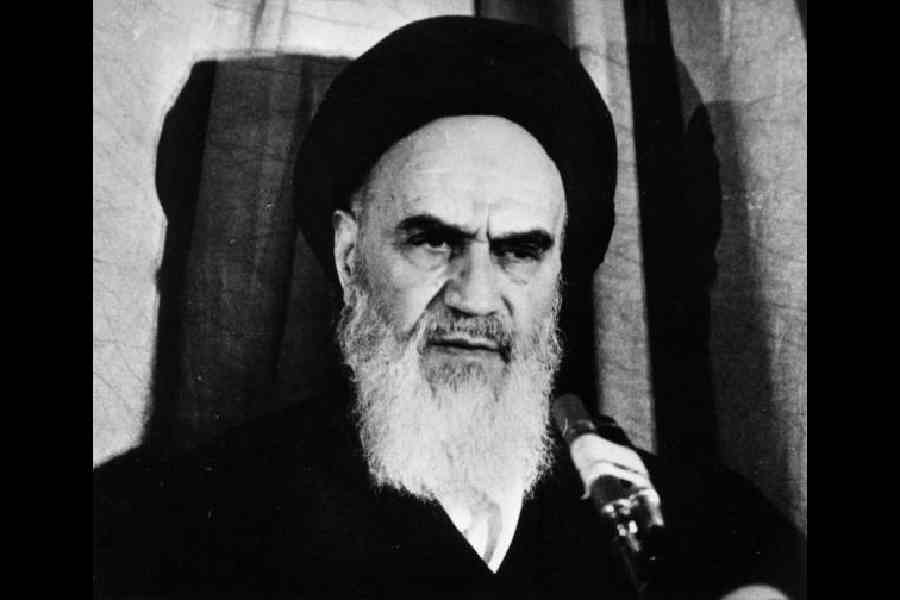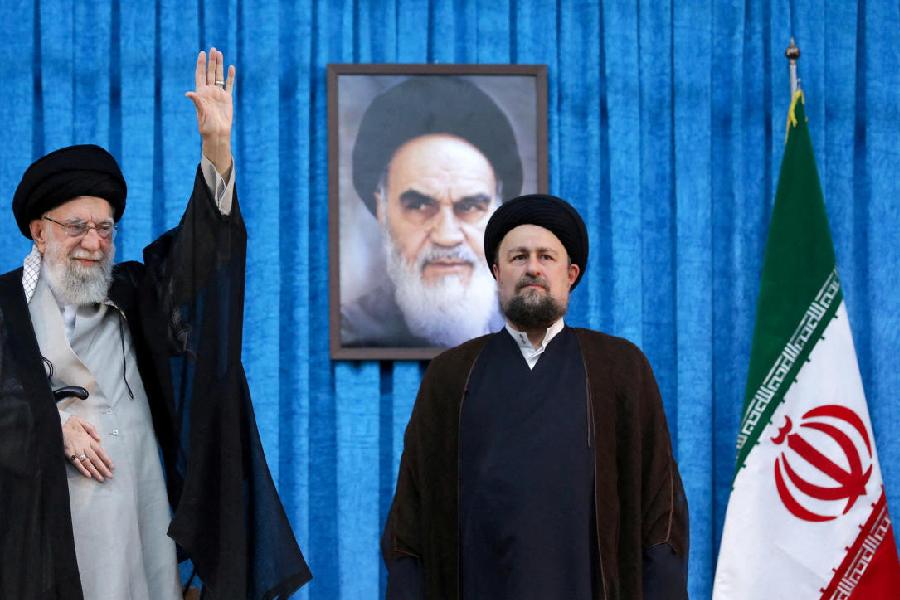 |
| Siddhartha Mukherjee |
London, Nov. 9: Siddhartha Mukherjee’s book on cancer will not hit the stores until summer next year but already it is being trailed across the world as the “next big thing” in non-fiction.
In Britain, Emperor of All Maladies is being recommended by experts as one of 30 books that candidates hoping for a place at Oxbridge, almost the Holy Grail of English education, should read prior to going in for their make-or-break interview.
Mukherjee, who is attached to Columbia University’s Cancer Centre, said he had thought about many of the deeper issues connected with cancer for a long time.
He has now written a “biography of cancer” for readers without specialist medical science knowledge.
“The book is to demystify cancer and an intellectual history of cancer and in that process a social and cultural history of cancer as well,” Mukherjee told The Telegraph in an exclusive interview.
He said he had mixed feelings about the enormous pre-publication publicity the book had generated. “Fortunately or unfortunately for me the book is being heavily anticipated,” he conceded.
He had attempted to write about cancer in a way that he felt was different. “Oddly enough there have been very few books on cancer with this kind of scope. As far as I know, aside from a few exceptions, no one has attempted to write a history of cancer in a very global, sweeping sense.
“There are lots of books about how to prevent cancer, patients’ health books, advocacy books, lobby books. There have been books that have summarised little bits of the political aspects of the war on cancer but I don’t think there has been a book which has explored cancer, as this book does, as a biography. I was writing not the biography of a person but the biography of an illness, of a disease. It is an old story but also a new story.”
Emperor of All Maladies is being published next summer in America by Simon and Schuster for Scribner. “In England, it will be the Fourth Estate. HarperCollins has bought it in India.”
“It is a subject that has not been handled in this way before but I don’t think it is worthwhile anticipating the book in the pre-sales pitch that is going on,” cautioned Mukherjee. “I would like somehow to contain it because the book should speak for itself. Whether the book rises to the occasion is a question mark — I hope it does. When you write a book it is like having your own baby and your relationship to it becomes so internalised.”
The word is out among publishers across the world that this is the book to buy.
“It has been sold also in Germany, France, Spain, in the Netherlands, Italy and Greece so far,” disclosed Mukherjee. “I have tried to keep the hype low. It is a work of non-fiction. I don’t believe that works of non-fiction benefit from hype.”
“The central theme is that cancer is going to become, if it is not already, a kind of defining illness of our generation in the same way that that plague was or tuberculosis was to the 19th century,” the author, who is hoping to undertake a number of book tours, including a crucial one to India, pointed out. “It is a disease that is shrouded in mystery.”
In the UK, the Waterstone book chain has promoted Emperor of All Maladies as “a comprehensive history of cancer — one of the greatest enemies of medical progress — and an insight into its effects and potential cures by a leading expert on the illness. In the course of his investigations into cancer, however, Mukherjee discovered that it is an ancient illness, which endured for centuries as a private matter, swaddled in secrecy and shame.
Mukherjee delves into the larger history of cancer. “The quest for the ‘cure’ for cancer has gradually transformed into a lodestone quest, the yardstick of our scientific and medical progress. This book is the story of that quest.”
Although a product of a Bengali milieu, Mukherjee, now 39 and settled in America with his wife and their young daughter, is not a doctor who is the son of two doctors (which is often the case).
“My father was an executive in Mitsubishi and my mother was a teacher,” he said.
His parents live in Delhi where he was born. “I went to St Columbus School and then I went directly from school at the age of 18 to Stanford as an undergraduate. I studied biology there.”
In some senses, his education for someone high achieving academically has been quintessentially Bengali.
“My PhD was from Oxford,” he said. “I was at Magdalen College, Oxford, as a Rhodes Scholar between 1993 and 1995-6. I came back to medical school at Harvard and was on the faculty at Harvard and just this last month switched to Columbia. I am up on the medical campus. I am assistant professor of medicine at the Columbia University Cancer Centre.”
His background had given him plenty of background and material for his book. “I am an oncologist by training, an MD and a PhD. I am a cancer doctor and hence treat patients with cancer. One of the important features of this book is not just writing a scientific history of cancer — some of which has been done before — but to synthesise the very complex and sometimes very charged and unpleasant history between science and medicine, which has been very much a feature of the history of cancer.”
Commenting on the genesis of his book, he recalled: “It arises out of questions that a patient asked me —‘where are we today and where are we going and where have we landed?’ She passed away but the book is an attempt to answer those questions so that patients or families afflicted by cancer do not feel that this is a mysterious illness.”
He believed that “understanding illness is the first step to curing it. Whether it means converting cancer to a chronic disease or obliterating it with chemotherapy, the first step is to understand it and the book is one step in that direction.”
The title is “a quote from a 19th century physician” he had found inscribed in a library book that “cancer is the emperor of all maladies, the king of our terrors”.
He added: “The book asks how old is cancer — and the answer is that it is as old as humanity. Although it is a disease couched in modern metaphors, in fact it is a disease that has existed since the beginning of time.”










